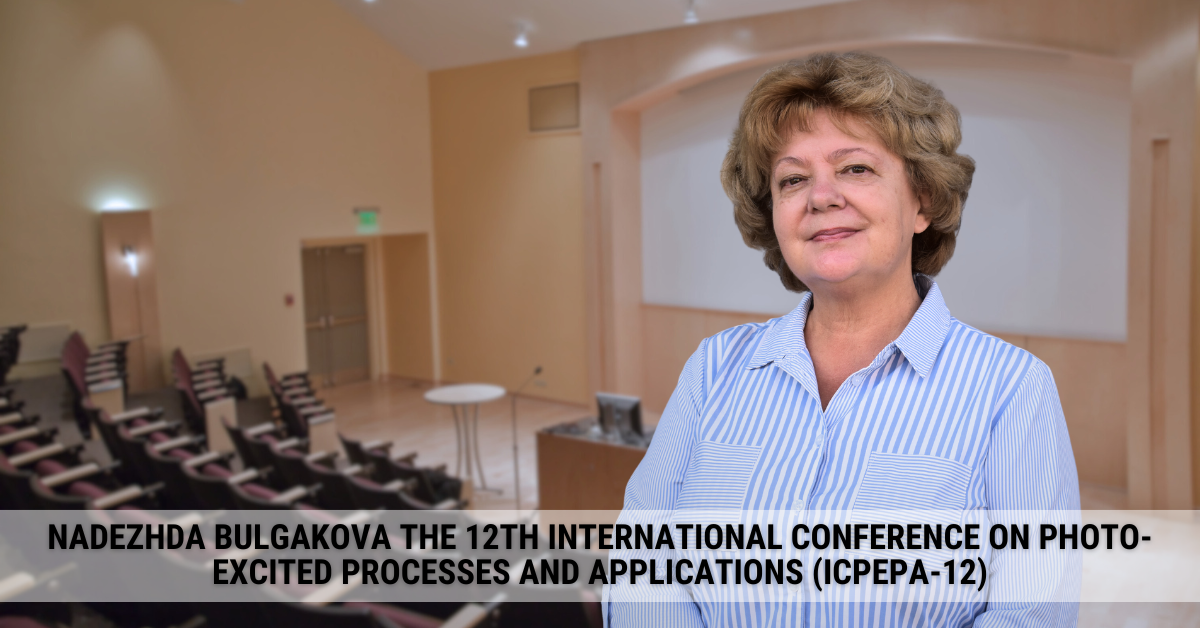Nadezhda Bulgakova, Head of the Scientific Laser Application (SLA) department, has participated in the hybrid (online and offline) 12th International Conference on Photo-Excited Processes and Applications (ICPEPA-12) held in Suzhou, China on September 18-22, 2023.
Nadezhda Bulgakova was an invited speaker, giving a talk on the topic of “Laser processing of bandgap materials in dual wavelength irradiation regimes: mechanisms and opportunities for efficient energy coupling” which was delivered in co-authorship with SLA department colleagues Vladimir P. Zhukov, Martin Zukerstein, Jan Hrabovský, and Alexander V. Bulgakov.

The topics of ICPEPA range from fundamental laser‐material interactions, theory, and modeling to applications with nanoparticles and nanophotonics as well as photoexcitations. The conference intends to create an atmosphere for scientific presentations at the forefront of the field and an informal exchange of ideas in a relaxing environment.
Talk abstract
The systhematic theoretical and experimental studies have been performed to explore the excitation of two types of bandgap materials, a wide bandgap dielectric (fused silica) and a semiconductor (silicon), with dual-wavelength ultrashort laser pulses. Both surface and volumetric irradiation regimes were investigated with two laser beams at different wavelengths acting simultaneously and successively, with variable separation time between the pulses. Two femtosecond lasers were used in experiments, PHAROS from Light Conversion, Lithuania and Astrella from Coherent at their fundamental and second harmonics. The most advanced up-to-date theoretical models were used for the description of laser light absorption on material surfaces and in bulk under specific experimental conditions. Details of the models and modelling results will be presented with a rigorous analysis of nonlinear effects and free-electron plasma dynamics responsible for enhanced absorption of bi-color laser light as compared to monochromatic laser pulses. The experimental and numerical data are in good agreement and demonstrate that bi-chromatic laser light can be an effective tool for achieving highly efficient material processing with better control of energy deposition to materials.
MORE INFORMATION about the conference









